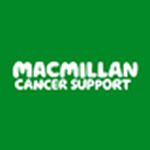Wednesday 23 May 2018
Susan Long, Cancer Support Specialist
If you are on cancer treatment, you'll be advised to look out for signs of infection.
Infection can be a serious side effect of cancer treatment. Treatments designed to destroy cancer cells can also lower the level of infection-fighting white blood cells (neutrophils) in your body. This means you are more at risk of picking up a bug (viral or bacterial infection).
During and after cancer treatment, an infection can become serious and even life threatening very quickly. A less serious infection may still require medical treatment and cause delays with your treatment plan.
It's important to recognise the signs of infection and report them promptly to your healthcare team, so that you can be assessed quickly, and treatment started.
Neutrophils (a type of white blood cell) are made in the body by the bone marrow. Chemotherapy drugs and some radiotherapy treatments can damage your bone marrow.
Your risk of infection increases if your neutrophil count falls below normal. Neutrophils in the blood are measured as part of a full blood count test (FBC).
When neutrophils are low this is called neutropenia.
The type or dose of chemotherapy you are having may increase your risk of developing neutropenia. You're more at risk if you:
There are certain times during each cycle of a course of treatment where the bone marrow, which produces the white blood cells, is most affected .
This usually starts around a week after treatment. It lasts until the bone marrow gradually recovers - about 3-4 weeks after treatment . Your specialist nurse/doctor will let you know about the effects of your particular treatment.
You'll be at risk of infection for as long as your neutrophil count is low. You may feel particularly tired, and also low in mood, during this time as well.
Your blood count is checked regularly throughout your course of treatment. If your neutrophil count is low your chemotherapy may be delayed to allow neutrophil counts to recover.
Often a week's delay is enough but sometimes the dose of chemotherapy is reduced to allow treatments to continue safely.
If you do develop an infection you'll usually have a blood test and be treated with antibiotics. In some cases admission to hospital for stronger intravenous (via a drip or a syringe into a vein) antibiotics may be necessary.
Not all infections can be prevented. However, reporting any signs of infection early to your healthcare team will allow you to have prompt treatment and will reduce the risk of serious problems.
There are three main things to remember:
Knowing what to look out for can be reassuring for you and also those around you. Ask your specialist nurse/doctor what to expect after each course of treatment.
Whilst fever is a common sign of infection it is not always present. Some medication can mask or hide a fever. Other signs of infection which you should also report straight away include:
Report signs of infection promptly. Whilst you are on cancer treatment, you'll have detailed instructions of symptoms to look out for by your medical team. You'll be given the number to call out of hours if you develop them and you should follow these instructions carefully.
Remember infections can get worse much quicker than normal and can become serious if you delay.
It's far better to phone and check your symptoms with your hospital team, day or night, rather than waiting to see if symptoms improve.
If you are telling a different doctor or team, or are having to go to an emergency department you should emphasise that you are having treatment for cancer - this will highlight the need for you to be treated quickly.
Many infections during or after cancer treatment are not caught from other people but are from normal bacteria (flora) within your gut or skin.
If your chemotherapy treatment is known to cause neutropenia your healthcare team may recommend treatment with medicine called growth factors. These stimulate the bone marrow to produce white blood cells and help prevent infection.
They're not used routinely for all people receiving cancer treatment. They're not suitable for all treatments and can have side effects of their own (bone pain, fatigue, fever and appetite loss).
Having an infection or a low neutrophil count may mean your treatment may be delayed. You may have your chemotherapy dose reduced.
Not all infections can be prevented. However, looking after yourself, and reporting problems early is helpful. It means you can have an infection treated promptly, and help avoid delays in treatment.
Talk to your specialist nurse/doctor. Find out whether your cancer treatment is likely to raise your risk of infection and any special precautions you need to take. Tell them promptly about any side effects you have following treatment.
Have a read through the links to blogs and information we have suggested on this page.
Drop into your nearest Maggie's centre to talk things over with other visitors and our cancer support specialists. Ask about our courses and workshops which can help you through your treatment and beyond.
Last review: Feb 2022 | Next review: Feb 2023
Learn more about the risks of infections for people with cancer and how to prevent and manage them.

From American Cancer Society
Last reviewed: 17 February 2024
Advice and information about coronavirus vaccine and cancer.

From Cancer Research UK (CRUK)
Last reviewed: 17 February 2022
Cancer or its treatment can lower your resistance to infection and make you more likely to catch flu. Find out more about the flu vaccine and if you should have it.

From Cancer Research UK (CRUK)
Last reviewed: 17 February 2022
Your resistance to infection can be low at times if you are having chemotherapy. There are some vaccinations you shouldn't have when you have low immunity because they could make you feel very ill.

From Cancer Research UK (CRUK)
Last reviewed: 17 February 2022
Fever can be caused by infection. Find out what symptoms to look out for, the different types and what can be done to control and treat your fever.

From Cancer Research UK (CRUK)
Last reviewed: 17 February 2022
Find out more about avoiding infection when you have lowered immunity.

From Macmillan Cancer Support
Last reviewed: 17 February 2022
To find your nearest Maggie's centre, enter your postcode or town below.
Stay up to date with our news and fundraising by signing up for our newsletter.
Sign up